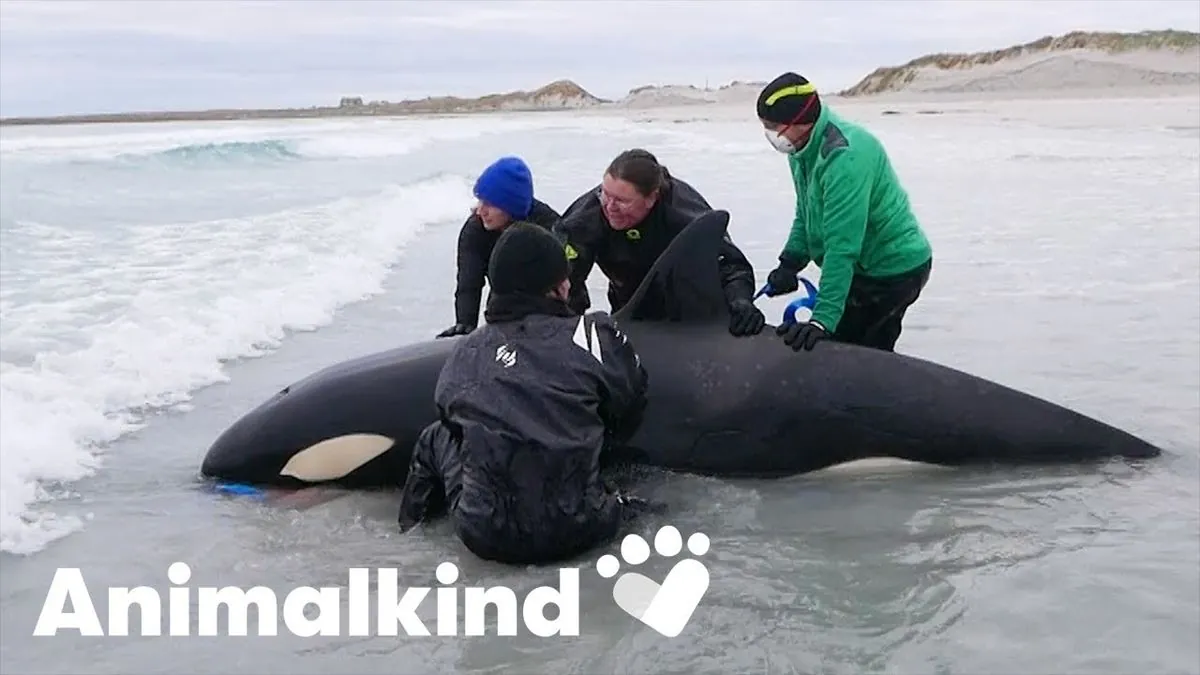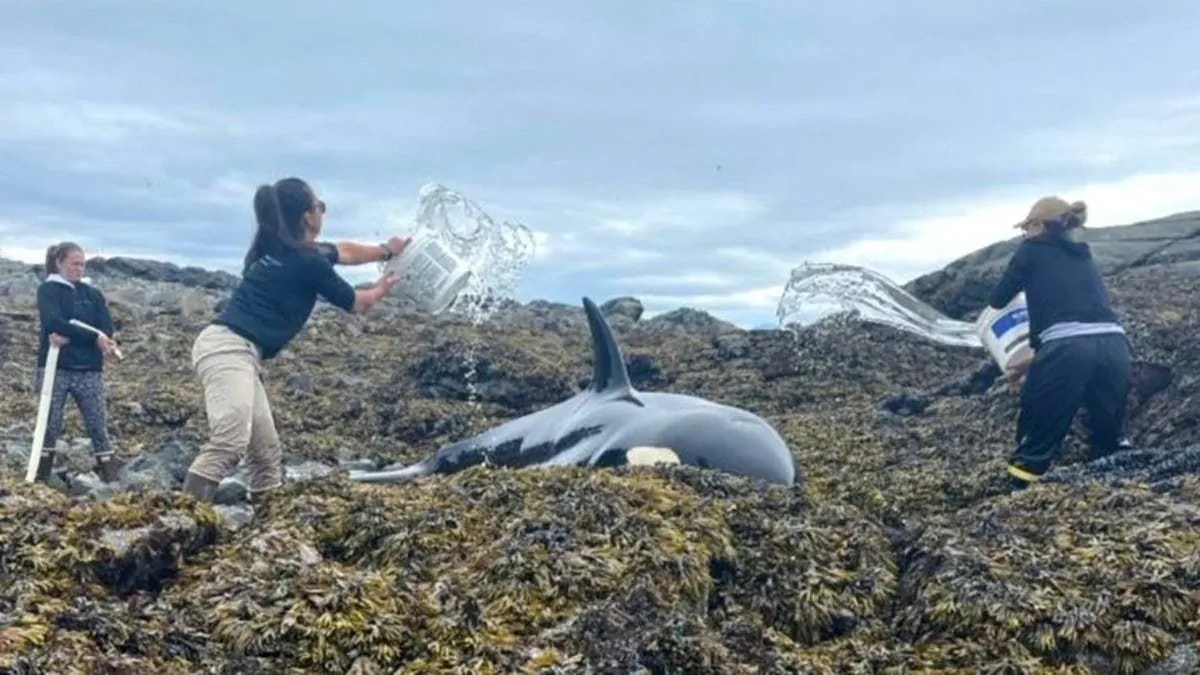Russian Rescuers Race Against Time to Save Stranded Orcas in Kamchatka
Russian emergency teams are working to rescue four killer whales stranded in a silted estuary off the Kamchatka Peninsula. Rescuers are manually watering the orcas while awaiting the tide to assist in their return to deeper waters.

In a race against time, Russian emergency responders and volunteers are currently engaged in a rescue operation to save four stranded killer whales off the Kamchatka Peninsula. The incident, unfolding on October 2, 2024, involves two adult orcas and two calves trapped in a silted estuary, presenting a significant challenge for the rescue team.
More than 30 dedicated rescuers have been deployed to the site, focusing their efforts on keeping the marine mammals alive until conditions improve. The team is manually dousing the orcas with water and attempting to guide them towards deeper waters. Sergei Lebedev, the region's emergency minister, stated, "We are waiting for the waters to come. The only way to help the animals now is to water them manually."
The Kamchatka Peninsula, where this rescue operation is taking place, is a remote 1,250-kilometer-long landmass in the Russian Far East, situated approximately 6,500 kilometers east of Moscow. This region is renowned for its unique ecosystem and diverse wildlife.

Killer whales, also known as orcas, are the largest members of the dolphin family and are found in oceans worldwide, from polar regions to tropical seas. These highly intelligent and social creatures typically live in pods of up to 40 individuals. Adult orcas can grow up to 32 feet (9.8 meters) in length and weigh up to 6 tons, making the rescue operation particularly challenging.
The Kamchatka Peninsula itself is a remarkable location, boasting over 160 volcanoes, 29 of which remain active. It forms part of the Pacific Ring of Fire and is known for its geothermal activity, including geysers and hot springs. The peninsula's ecosystem, largely unspoiled due to its remote location, supports a variety of wildlife, including the world's largest population of brown bears.
Orcas are known for their complex hunting strategies and use of echolocation for navigation. They can dive to depths of up to 1,000 meters (3,280 feet) and have a lifespan of 50-80 years in the wild. These fascinating creatures have no natural predators other than humans, making conservation efforts crucial.
The rescue team faces additional challenges due to the subarctic climate of the Kamchatka Peninsula, characterized by long, cold winters and short, cool summers. The region's 2,000-kilometer coastline and its strategic importance led to it being closed to foreigners until 1990.
As the rescue operation continues, the team remains hopeful that the incoming tide will assist in their efforts to guide the orcas back to deeper waters. This incident serves as a reminder of the delicate balance between marine life and their environment, highlighting the importance of conservation efforts in preserving these magnificent creatures and their habitats.


































